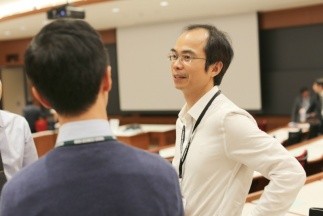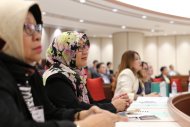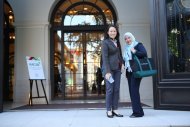AACSB APAC: Institution Strategy
Fixing a long-term strategy with room for flexibility is one of the hallmark skills that business schools aim to deliver to students. For business school administrators, having this skill themselves is nothing to be overlooked – it is necessary to practice what we preach especially in the realm of business and management education. From a growing business school in Thailand to one of the elite, premier schools in China one of the second concurrent sessions focused on informing participants how to create a ‘living document’ that guides institutions on strategy for shifting demographics, disruptors and talent management.
Speaking on behalf of the NIDA Business School in Thailand, Director Boonchai Hongcharui discussed how his institution originally started in 1966 as the graduate-only, government-owned university offering the first MBA in Thailand to reaching AACSB Accreditation in 2012 and how the strict requirements of AACSB led to better strategy development. On the other hand, the University Chair, Professor and Former Dean of Shanghai Jiao Tong University, Antai College of Economics and Management Lin Zhou defined institution strategy by starting first with the mission and vision and four key elements to strategy formation which included priority, measurability, flexibility and time horizon.

The AACSB International Asia Pacific Conference was held in Nagoya, Japan from Oct. 29 – 31 and was hosted at the NUCB Business School Nagoya Marunouchi Tower Campus. The city of Nagoya has long been the manufacturing heart of Japan and continues to experience explosive growth as a business hub for all of Japan. AACSB, the Association to Advance Collegiate Schools of Business, is one of the three most respected and valued global accreditation bodies that signals the highest level of quality assurance to students, employers, and other business schools around the world. The NUCB Business School is only one of four schools in Japan with AACSB accreditation and the only one with AACSB and AMBA dual accreditation.

 Brochure
Brochure
 Info Session
Info Session
 Application
Application
 Alumni Voices
Alumni Voices






